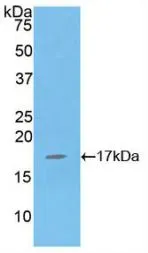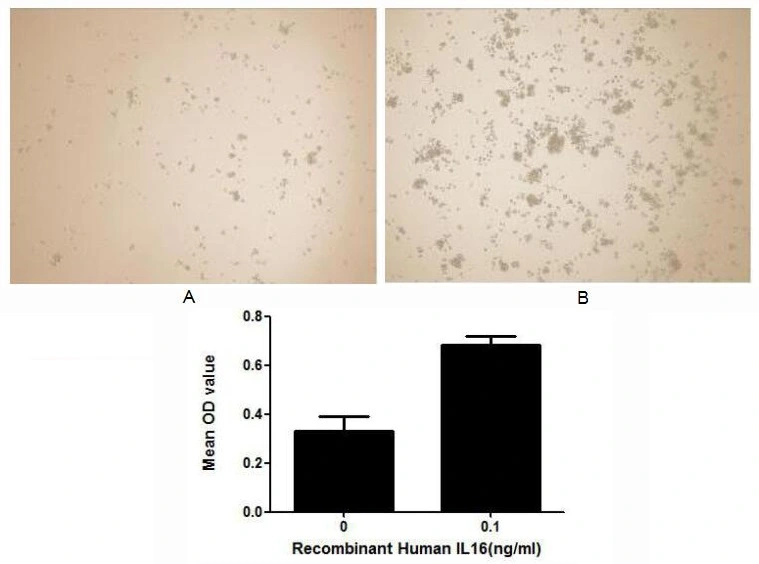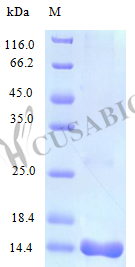
WB analysis of GTX00089-pro Human IL16 protein (active).
Human IL16 protein, His tag (active)
GTX00089-PRO
ApplicationsFunctional Assay
Product group Proteins / Signaling Molecules
Protein IDQ14005
Overview
- SupplierGeneTex
- Product NameHuman IL16 protein, His tag (active)
- Delivery Days Customer9
- Application Supplier NotePro-IL16 (Interleukin16) is a 631 amino acid precursor molecule, which is then cleaved into different isoforms. Researches have shown that the recombinant human IL16, containing C-terminal 130 amino acids, has same bioactivity as the natural secreted human IL16. Besides, IL16 has been considered to stimulate the proliferation of Jurkat cells at low dose (10-9 M). Thus, a proliferation assay of recombinant human IL16 was conducted using Jurkat cells. Briefly, Jurkat cells were seeded into triplicate wells of 96-well plates at a density of 1x104 cells/well in RPMI-1640 with the addition of various concentrations of IL16. After incubated for 72h, cells were observed by inverted microscope and cell proliferation was measured by Cell Counting Kit-8 (CCK-8). Briefly, 10 microl of CCK-8 solution was added to each well of the plate, then the absorbance at 450nm was measured using a microplate reader after incubating the plate for 1-4 hours at 37C. Cell proliferation of Jurkat cells after incubation with IL16 for 72h observed by inverted microscope.
- ApplicationsFunctional Assay
- CertificationResearch Use Only
- ConjugateUnconjugated
- Gene ID3603
- Target nameIL16
- Target descriptioninterleukin 16
- Target synonymsLCF, NIL16, PRIL16, prIL-16, pro-interleukin-16, lymphocyte chemoattractant factor, neuronal interleukin 16, prointerleukin 16
- Protein IDQ14005
- Protein NamePro-interleukin-16
- Scientific DescriptionThe protein encoded by this gene is a pleiotropic cytokine that functions as a chemoattractant, a modulator of T cell activation, and an inhibitor of HIV replication. The signaling process of this cytokine is mediated by CD4. The product of this gene undergoes proteolytic processing, which is found to yield two functional proteins. The cytokine function is exclusively attributed to the secreted C-terminal peptide, while the N-terminal product may play a role in cell cycle control. Caspase 3 is reported to be involved in the proteolytic processing of this protein. Alternate splicing results in multiple transcript variants. [provided by RefSeq, Feb 2010]
- Storage Instruction-20°C or -80°C,2°C to 8°C
- UNSPSC41116120
- SpeciesHuman




